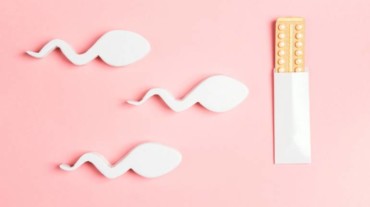
That’s the thing about all things painful that we women have to deal with: they all come with a fair share of advantages. Waxing comes with a promise of silky-smooth legs, periods come with a promise of a pregnancy-free month ahead, pregnancy comes with a promise of a beautiful feeling when you finally hold your baby, and finally—breastfeeding. Apparently, it comes with a promise of no pregnancy post sex (without taking any precautions), at least for the time you’re breastfeeding the baby regularly.
Your daadi knows this, so does your mommy, and now even you do. But the real question here is—how true is this claim?
Let’s find out from the experts
“Breastfeeding a baby helps prevent pregnancy during intercourse with a partner without using protection,” states Dr. Nupur Gupta, director, obstetrics and gynaecology department, Fortis Hospital, Gurugram.
Explaining the reason behind this blessing she says, “Breastfeeding the baby on demand and at regular intervals releases high levels of prolactin, a milk-producing hormone in the mother’s body. This interferes with the hypothalamic-pituitary-ovarian chain, preventing oestrogen secretion and inhibiting ovulation.”
Actually, it’s nature’s way of ensuring that the new mother remains healthy and safe against an unplanned pregnancy soon after delivering a baby.
Now obviously, with the ovaries not releasing eggs due to prohibition of ovulation, what’s there to get fertilised in the first place?

Enter LAM, a fancy acronym for nature’s blessing
Not only is breastfeeding an effective contraception hack, but this method also has a proper name—lactational amenorrhea method or LAM.
“LAM is nature’s blessing to prevent the next pregnancy and at the same time encourages breastfeeding for an infant. It is based on natural infertility resulting from the milk production in the body,” explains Dr. Vimal Grover, director obstetrics and gynaecology, Fortis LaFemme, Greater Kailash, Delhi.
Is it reliable enough to actually ditch condoms?
“LAM is about 96% effective in the first few months of delivery, say maybe, the first 3-5 months. Subsequently, the effectiveness diminishes to 70% – 80% in the following months. So the couple should resort to some additional method of contraception after six months of breastfeeding,” Dr. Grover explains.
Also, read: Do you believe these 5 myths about contraception?
Select Topics of your interest and let us customize your feed.
PERSONALISE NOWIn fact, according to the U.S. Department of Health & Human Services and several other researches, exclusive breastfeeding is 98-99.5% effective in preventing pregnancy. However, there’s just one thing you need to ensure in order to enjoy this one advantage of an otherwise cumbersome phase: exclusive breastfeeding should remain true to its name—basically, it should actually be EXCLUSIVE and meet these three conditions:
In fact, these advantages of LAM will strengthen your faith further
The benefits of LAM aren’t just limited to reducing the risk of pregnancy after unprotected sex. Dr. Grover has a whole list of happiness that comes with it, so, check it out:
Now, this makes LAM sound like a win-win situation, doesn’t it?
But remember, there are no free lunches in life
I hate the fact that I can’t let you breastfeeding mothers bask in its glory without warning you about these possible issues when it comes to enjoying unprotected sex during the breastfeeding phase:
1. Meeting the conditions is a task in itself
Breastfeeding isn’t easy. Not only is it a cumbersome task, but it can also be a very painful one for many mothers.
2. The bliss won’t last forever
All good things come with an expiration date and breastfeeding does too. After six months of taking advantage of the natural contraception it provides, you’ll have to get back to your old ways of using a condom or oral contraceptives or get an IUD insertion for birth control. Because your fertility will return eventually.

3. The bliss might not be as blissful while it lasts
Unfortunately, the same dip in oestrogen that prevents ovulation and menstruation could be responsible in reducing your sex drive. What’s the point of talking about enjoying sex if you wouldn’t feel like doing it in the first place?
4. The bliss could also come with some pain
The same lack of oestrogen could contribute to making you feel less aroused and the consequential inadequate lubrication down there could make the sexual intercourse a painful experience.
5. The leakage could make it worse
Needless to say, excess prolactin can make your breast milk leak even while you’re having sex. You could pump the milk in a bottle or simply feed the baby before having sex to avoid this mess. Additionally, wearing a bra with nursing pads can help your case too.
The final word
“Breastfeeding is known to act as natural contraception, however, women should not rely solely on it,” warns Dr. Grover.
Get Latest Updates on Preventive Care, Family Care, Reproductive Care, Self Care